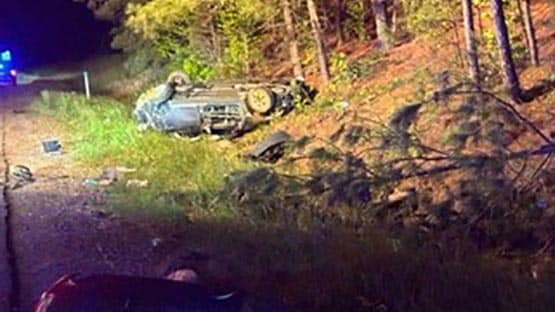
The 49 grants will generate more than $21.9 million in matching contributions for a total conservation impact of nearly $35 million. The 19 projects in Virginia will leverage matching funds of $11,311,235 for a total of $18,048,992 to support water quality improvements.
The grants were awarded through the Chesapeake Bay Stewardship Fund (CBSF), a partnership between NFWF and the EPA’s Innovative Nutrient and Sediment Reduction Grants Program (INSR Program) and Small Watershed Grants Program (SWG Program). Additional support is provided by the U.S. Department of Agriculture’s Natural Resources Conservation Service, the U.S. Forest Service, the U.S. Fish and Wildlife Service, the Altria Group Restoring America’s Resources partnership and CSX.
Grant recipients were announced at the Cork Factory Hotel in downtown Lancaster in conjunction with the NFWF–hosted, biennial Chesapeake Ag Forum, a conference that brings together the best practitioners and partners advancing agricultural conservation practices across the Chesapeake Bay watershed.
“The Commonwealth of Pennsylvania plays a significant role in the health of the Chesapeake Bay watershed,” said Senator Bob Casey. “But more importantly, actions taken in Pennsylvania to improve the Bay begin with efforts to restore clean water to the Conestoga, the Susquehanna, and the thousands of miles of rivers and streams right here in the Commonwealth. Financial resources, beginning with our Federal agency partners like the U.S. Environmental Protection Agency, are critical to these ongoing collaborative local efforts.”
The projects supported by the 49 grants announced today will support methods to improve waterways, restore habitat and strengthen iconic species in Delaware, Maryland, New York, Pennsylvania, Virginia, West Virginia and the District of Columbia. The funds will engage farmers and agricultural producers, homeowners, churches, businesses and municipalities in on-the-ground restoration that supports quality of life in their communities, improving local waterways and, ultimately, the health of the Bay.
“EPA is pleased to support innovative and sustainable approaches to improving the health of our rivers and streams,” said EPA Regional Administrator Cosmo Servidio. “These investments in partnerships with states and local organizations encourage community stewardship of resources that will help preserve and enhance healthy waterways throughout the Chesapeake Bay watershed.”
The INSR Program awarded more than $7.3 million to eight projects, with recipients providing more than $10.4 million in match. The program provides grants to accelerate the implementation of water quality improvements specifically through the collaborative and coordinated efforts of sustainable, regional-scale partnerships with a shared focus on water quality restoration and protection in local waterways and the Chesapeake Bay.
“The grants announced today will empower communities and businesses throughout the Chesapeake Bay watershed to become better stewards of natural resources,” said Jeff Trandahl, executive director and CEO of NFWF. “In many cases, these grants fund voluntary efforts to decrease sedimentation and runoff from farms and businesses, which boosts water quality throughout the 64,000-square-mile watershed and advances long-running efforts to improve the overall health of the Chesapeake Bay.”
The SWG Program awarded more than $5.7 million to 41 projects, with recipients providing nearly $11.4 million in match. The program provides grants to organizations and municipal governments that are working to improve the condition of their local watershed through on-the-ground restoration, habitat conservation and community involvement. Grant recipients expect to reduce pollution through infrastructures including greener landscapes and community outreach initiatives that promote native landscaping and improved practices for managing runoff.
This year’s Chesapeake Stewardship Fund grant recipients in Virginia:
- Alliance for the Chesapeake Bay ($999,963) will implement green stormwater management practices to manage upload runoff at schools throughout impaired watersheds in the city of Richmond. The main focus will be on converting impervious to pervious surfaces using a suite of best management practices and integrating Chesapeake Bay restoration and stormwater management practices into the science curriculum at three schools.
- Lynnhaven River Now ($200,000) will construct the first alternative substrate reef in the Lynnhaven River using crushed concrete to show a replicable method for alternative-substrate reefs in the Chesapeake Bay watershed.
- Virginia Institute of Marine Science ($49,994) will support a multi-disciplinary approach to address Chesapeake Bay farmlands at risk to rising sea levels and will bring together agricultural economists, experts in alternative cropping systems and ecosystem specialists to provide expertise on how to transition vulnerable agricultural landscapes to increased inundation or saturation.
A complete list of the Chesapeake Bay Stewardship Fund 2018 grants winners is available here.










